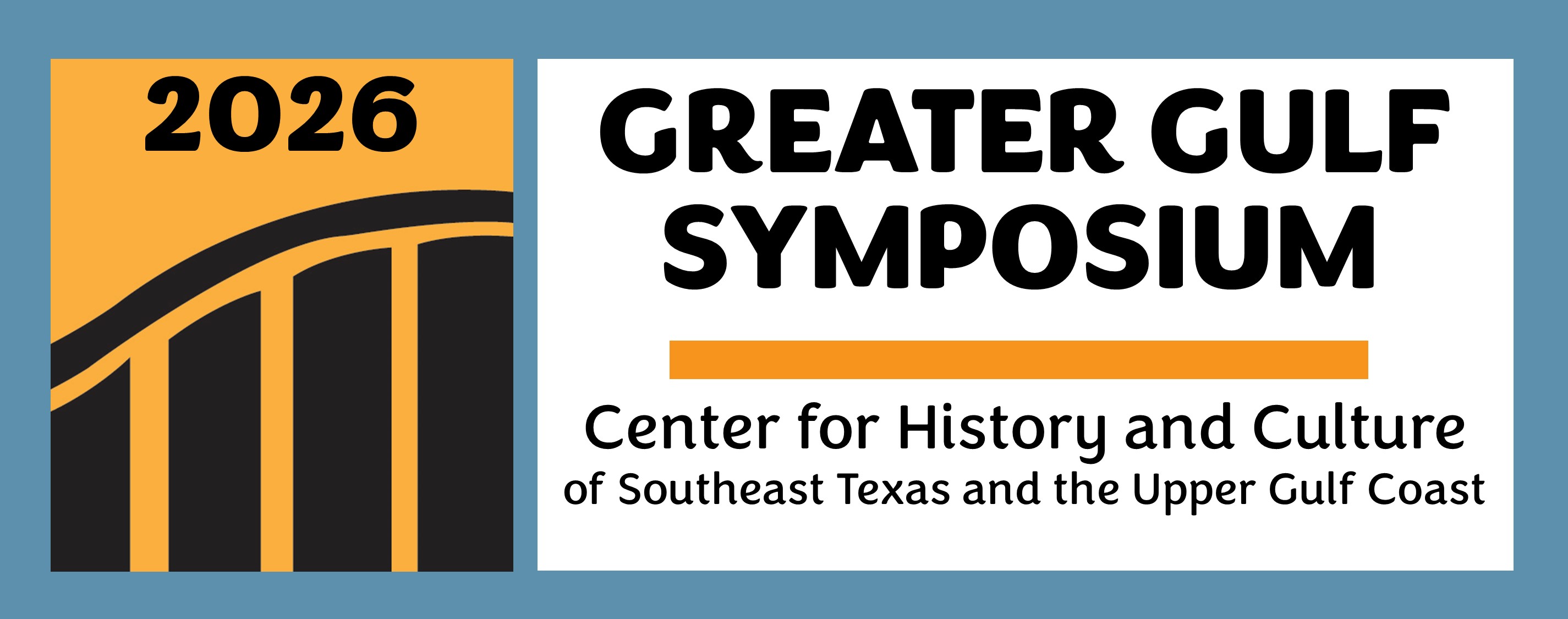2026 Greater Gulf Symposium

Storytelling in the Greater Gulf
From the Yucatán Peninsula to the Florida Keys, from the oral traditions of many Indigenous cultures to modern-day digital content creators, Southeast Texas and the greater Gulf regions have enjoyed rich histories of storytellers and storytelling. Narratives and all their varied forms energize human societies with meanings that help them make sense of each other and their physical and emotional environments. As constructed and malleable forms of communication, stories often serve conformist, or subversive, but seldom ambivalent agendas. Not only indispensable to the culture and history, storytelling has also shaped the literatures of Southeast Texas and the greater Gulf as they have borrowed from established genres to create new perspectives such as “bayou gothic,” “Southern noir,” “country hood,” “petrofiction,” and many others. Both an agent of change and an adherent to tradition, storytelling plays a substantial role in positioning the region as representative of larger national and global forces while simultaneously forming a locality that is grounded in place and utterly unique.
The Center for History and Culture will convene an interdisciplinary symposium at Lamar University, Beaumont, Texas, on March 30-31, 2026, to consider the many storytelling modes of the greater Gulf and publish this work in a themed issue of The Texas Gulf Historical and Biographical Record. Topics may include but are not limited to art history, communication studies, cultural history, folklore, literature studies, music, and oral history.
Dr. Keagan LeJeune of McNeese State will serve as Symposium Chair. In addition to assisting the Center with selecting Fellows and participating in the workshops, he will give a keynote talk. LeJeune’s most recent book, Finding Myself Lost in Louisiana (2023), won the 2024 Summerlee Book Prize given by the Center for the best book-length nonfiction publication about Southeast Texas and the greater Gulf regions. He is also dean of the College of Liberal Arts at McNeese State.
The Center invites paper proposals from established and emerging scholars, practitioners, preservationists, and curators who actively seek intersections between literature studies, anthropology, art history, communications, cultural studies, folklore, history, musicology and other fields. The Center and The Record welcome projects with a Southeast Texas focus but encourage all projects that conceive the greater Gulf in regional, national, and global contexts.
To apply, submit a 300-word proposal for a single paper and a brief c.v. (2 pages maximum) by November 10, 2025. Symposium Fellows will commit to submitting drafts for pre-circulation by March 2, 2026, and participate in the events and workshops in person on March 30-31, 2026. They will share their work in a manuscript workshop with the other Fellows, Center-affiliated faculty, and a small number of invited scholars. Fellows will also prepare posters that provide an overview of their projects at a public reception. After the symposium, Fellows will revise their papers and submit final drafts of about 8,000 to 10,000 words (notes included) by July 1, 2026, for peer review and publication in The Record.
The Center will provide lodging, food, and $750 (paid upon receipt of the pre-circulated draft). Each author will receive contributors’ copies of The Record.
Send proposals as email attachments and direct your inquiries about the symposium, the Center, or The Record to:
Jimmy L. Bryan Jr., Director, The Center for History and Culture of Southeast Texas and the Upper Gulf Coast; Editor, The Texas Gulf Historical and Biographical Record; Professor of History, Lamar University
(jlbryan@lamar.edu).
Dates:
by November 10, 2025
Submit a 300-word proposal for a single paper and a brief c.v. (2 pages maximum)
by March 2, 2026
Symposium Fellows will submit drafts for pre-circulation.
on March 30-31, 2026
Symposium Fellows will convene at Lamar University, share their work in a brief presentation, and workshop it with other participants, Center-affiliated faculty, and a small number of invited scholars.
by July 1, 2026
After the symposium, participants will revise their papers and submit final drafts of about 8,000-10,000 words (notes included) for peer review.
The Center for History and Culture acknowledges that Lamar University is located on the traditional territory of the Atakapa-Ishak Nation, and we recognize that the region our university serves includes the homelands of the Akokisa, Bidai, Karankawa, Alabama-Coushatta, and other nations. We further acknowledge that, as president of the Republic of Texas, Mirabeau B. Lamar, the namesake of our university, oversaw the forced removal of Caddo, Cherokee, Comanche, Delaware, Kickapoo, Shawnee, and other peoples from their homes. We affirm and respect tribal sovereignty in this land and in all territories.